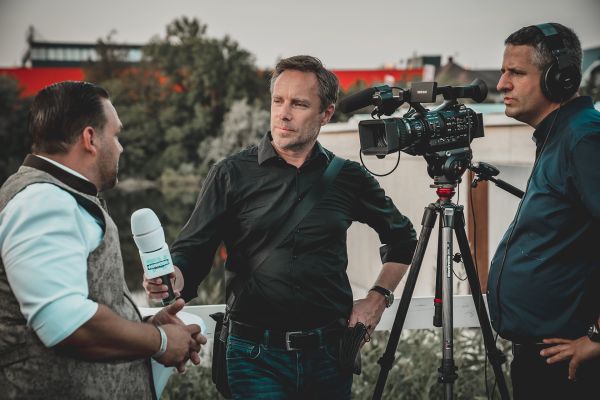Blog
Independent filmmakers face the challenge of creating projects that look and sound professional while working on a budget that is a fraction of the massive studio productions. Yes, it is a challenge, but it is not impossible. Thanks to digital technology, many independent filmmakers have been able to drastically improve the quality of independent films. Some creations, even those with minuscule budgets, look as good as well-funded motion pictures. However, where some of these films lack is in the sound. To create realistic, immersive sound that helps tell the story in your film, all you need to do is find the right equipment at an affordable cost and use it in such a way to get the most out of what you have.
The Right Equipment
It is tempting to save money on equipment and time in post-production by recording straight to a camera. Filmmakers who try to get sound from a camera's internal microphone are quickly disappointed. Internal mics are fine as a reference track for syncing audio, but they will never be able to capture professional-grade sound. Some cameras do come with professional XLR connections, some even with phantom power. The right microphones plugged into this type of connection will undoubtedly be an improvement over the built-in microphone. However, for the very best quality audio, you should start with an external recorder and the right mics for the job.
External Recorders
Stand-alone digital audio recorders can be found for under $200. At this price, you can get at least two XLR connections and four individual recording tracks. That means you can record up to four separate audio files at the same time. With a larger budget, you can add more tracks and XLR connections. For under $1000, recorders can be purchased with up to ten tracks, eight inputs, and even a built-in time code generator for professional syncing. If you only plan to use one or two mics at a time, a four-track recorder will likely do the trick. For more advanced setups, more channels offer more flexibility.

The Right Microphones
Independent filmmakers can save a lot of money and hassle by learning as much as possible about microphones. It is unlikely that there is one microphone that will cover all the types of sound you will be capturing. Dialogue usually requires either a lavalier discretely placed on the subject, or a shotgun microphone held just off-camera. Background sounds can be picked up on condenser microphones mounted on stands to reduce vibration. Also, pay attention to microphone patterns. Finding the right pattern will mean you can capture the sound from the specific direction(s) you want. Typically mics come in omnidirectional, bidirectional, unidirectional, and cardioid patterns. Some also come with adjustable patterns meaning that you can use one mic for different purposes.
Other Things to Keep in Mind
Audio recording for independent film making is part science, part art, and part experimentation. Once you have the right recorder and the right mics, you are ready to get started. There are a few things that will make your sound recording a bit easier. First, watch your levels. Levels that are too low can be raised in post-production. However, when you raise the level, you will also increase the noise level. Levels that are too high can cause clipping. Excessive clipping can make your tracks unusable. Second, redundancy can save your project. It never hurts to record a second or third track. Even if you end up using a lower quality microphone or a less than optimal placement, if something goes wrong with your primary microphone, that backup may save you. Also, sometimes, the other mic picks up sounds that were missed by your primary mic. Adding those sounds to the mix may add to the richness of your film.


